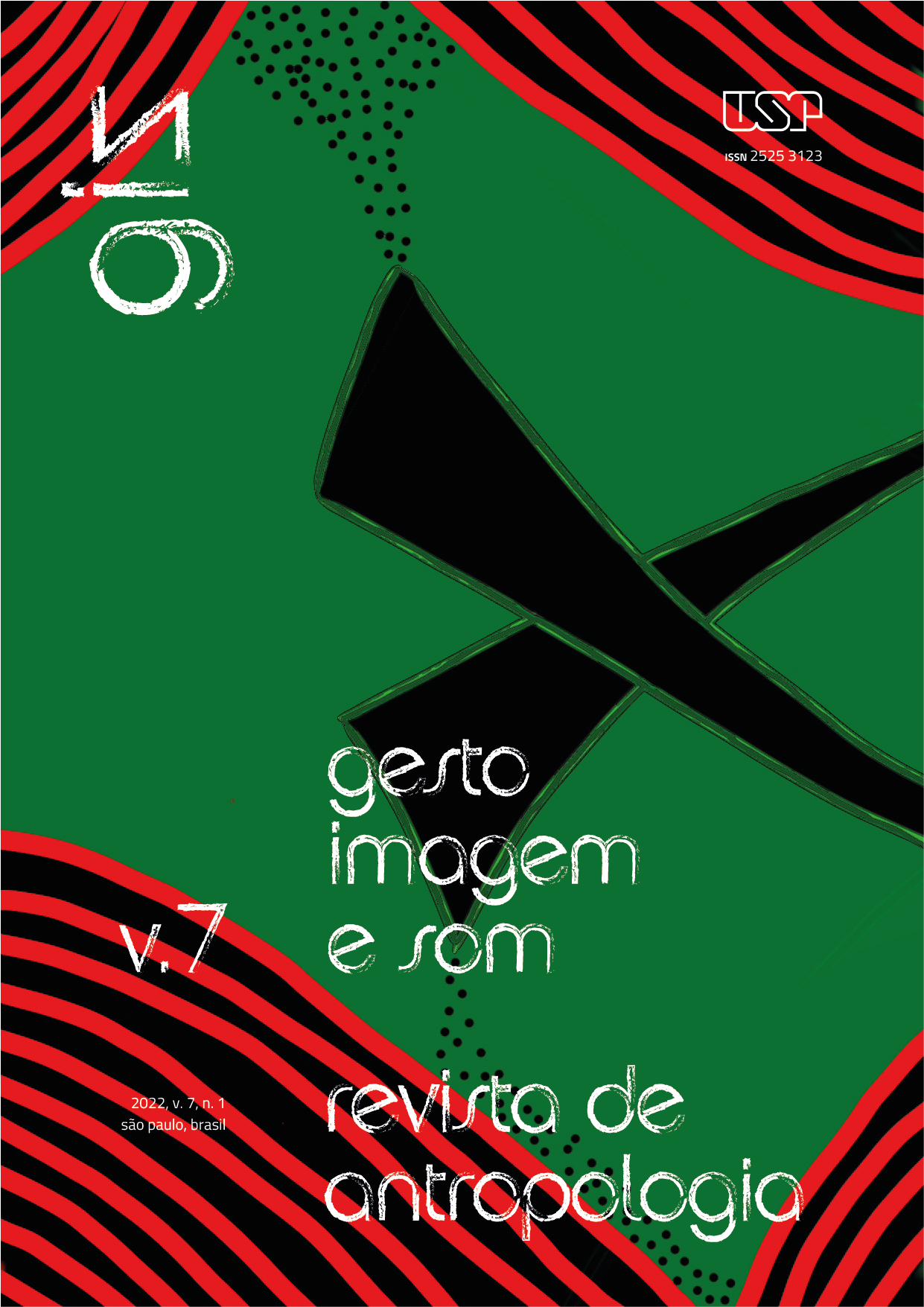Psalm 4: religiosity and Bible Hebrew poetry
DOI:
https://doi.org/10.11606/issn.2525-3123.gis.2022.184847Keywords:
Psalms, Religiousness, Form and Content, IntertextualityAbstract
The Hebrew-biblical poetry is full of liturgical and doxological elements that reflect the religiosity of worshipers. The present work seeks to explore the themes and meanings recorded in Psalm 4, based on the “Total Analysis Method” and the “Synchronic Intertextuality”, developed from Weiss (1984) and Bakhtin (2006), and worked on by Buber (1994) and Kristeva (1969), respectively. Preliminarily, a synthetic bibliographic review is made, where the general perception of the Psalm is presented. Next, the analysis is made from three sections: analysis of the poetic-literary aspects presents in the text, macro-structural analysis, and dialogical synthesis. In short, it is noted that the Psalm establishes a dialogue between three cosmic figures. The stanzas are delimited based on the inflected use of such persons in the discourse, and elements from different contexts are evoked using specific vocabulary, establishing an expression of religiosity common to the book.
Downloads
References
Bakhtin, Mikhail. 2006. Estética da Criação Verbal. São Paulo, SP: Editora Martins Fontes.
Botterweck, Bergman, Ringgren e Lang. 1980. Theological Dictionary of the Old Testament. Grand Rapids, MI; Cambridge, U.K.: William B. Eerdmans Publishing Company.
Botterweck, Ringgren, Freedman, Lundbom e Fabry. 1986. Theological Dictionary of the Old Testament. Grand Rapids, MI; Cambridge, U.K.: William B. Eerdmans Publishing Company.
Botterweck, Ringgren e Görg. 1990. Theological Dictionary of the Old Testament. Grand Rapids, MI; Cambridge, U.K.: William B. Eerdmans Publishing Company.
Botterweck, Freedman e Willoughby. 1999. Theological Dictionary of the Old Testament. Grand Rapids, MI; Cambridge, U.K.: William B. Eerdmans Publishing Company.
Brueggemann, Walter. 2014. From whom no secrets are hid: Introducing the psalms. Louisville, Kentucky: Westminster John Knox Press.
Buber, Martin e Rosenzweig, Franz. 1994. Scripture and Translation. Indiana: Indiana University Press.
Craigie, Peter. 2004. Psalms 1–50. 2 ed. Nashville, TN: Nelson Reference & Electronic.
Croft, Steven. 1987. The identity of the individual in the psalms. Western Bank, Sheffield: Sheffield Academic Press Ltd.
Dahood, Mitchell. 2008. Psalms I: 1-50: Introduction, Translation, and Notes. New Haven, London: Yale University Press.
Feuer, Avrohom Chaim. 2004. Tehilim: A new translation whit a commentary anthologized from Talmudic, midrashic and rabbinic sources. Brooklyn, NY: Mesorah Publications Ltd.
Gerstenberger, Erhard. 1988. Psalms part I with an introduction to cultic poetry. Grand Rapids, MI: William B. Eerdmans Publishing Company.
Hengstenberg, Ernst Wilhelm. 1869. Commentary on the Psalms. v. 1. Edinburgh, U.K.: T&T Clark.
Kraus, Hans-Joachim. 1993. A Continental Commentary: Psalms 1–59. Minneapolis, MN: Fortress Press.
Kristeva, Julia. 1969. Introdução à Semanálise. São Paulo: Debates.
Mandolfo, Carleen. 2002. God in the Dock: Dialogic Tension in the Psalms of Lament. London, NY: Sheffield Academic Press.
Mays, James Luther. 1994. Interpretation: A bible commentary for teaching and preaching. Louisville, Kentucky: John Knox Press.
Schokel, Luis Alonso. 1997. Dicionário bíblico hebraico-português. 1. ed. São Paulo, SP: Paulus.
Terrien, Samuel. 2003. The Psalms: Strophic, structure and theological commentary. Grand Rapids, MI; Cambridge, U.K.: William B. Eerdmans Publishing Company.
Wardlaw Jr, Terrance Randall. 2015. Elohim within the psalms: Petitioning the creator to order chaos in oral-derived literature. London, U. K.: Bloomsbury T&T Clark.
Weiss, Meir. 1984. The Bible from within: The Method of Total Interpretation. Jerusalem: The Magnes Press - The Hebrew University.
Weiser, Artur. 1988 The Psalms: A commentary. Philadelphia, PE: The Westminster Press.
Downloads
Published
Issue
Section
License
Copyright (c) 2022 Eliathan Carvalho Leite

This work is licensed under a Creative Commons Attribution-NonCommercial-NoDerivatives 4.0 International License.
Authors who publish in this journal agree to the following terms:
a. All rights reserved for authors. Journal has right to first publication. Work is simultaneously licensed under Creative Commons Attribution License which permits sharing work with recognition of authorship and initial publication in this journal for non-commercial ends.
b. Authors are authorized to separately make additional contracts for non-exclusive distribution of version of work published in this journal (e. g. publish in institutional repository or as book chapter), with recognition of authorship and initial publication in this journal.







